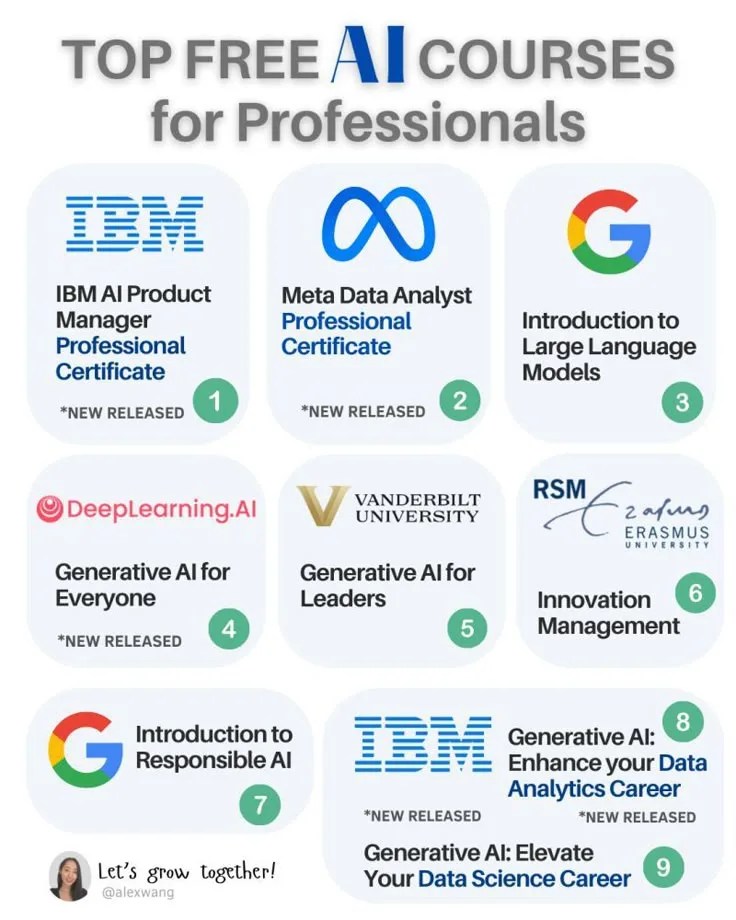Machine learning is no longer just a buzzword—it’s a career-defining force. In 2025, machine learning (ML) is embedded in every layer of the tech industry, influencing product development, cybersecurity, customer experience, and automation. For anyone in tech, understanding ML isn’t just optional—it’s essential.
This article unpacks how machine learning is transforming tech careers, the roles it’s creating, the skills you need, and how to stay ahead of the curve.
Table of Contents
Why Machine Learning Is Driving the Future of Work
Machine learning enables software to identify patterns, adapt to new data, and make decisions with minimal human intervention. From voice assistants and fraud detection systems to predictive analytics and self-driving cars, ML is behind nearly every innovation in 2025.
Major tech giants—including Google, Meta, Amazon, NVIDIA, and OpenAI—are doubling down on ML investments. As a result, tech professionals who can work with ML systems are highly sought after.
According to LinkedIn, machine learning is one of the top three fastest-growing skill sets in tech, especially in roles tied to automation, AI infrastructure, and product intelligence.

How ML Is Changing Roles Across Tech
1. Software Developers
Developers are now integrating machine learning models directly into applications, using tools like TensorFlow, PyTorch, and ONNX. Basic knowledge of ML is becoming expected—even in traditional front-end or full-stack roles.
2. Data Scientists & Data Analysts
ML expands what analysts can do. From anomaly detection and clustering to predictive analytics, ML lets data professionals uncover deeper insights and automate reporting.

3. Cybersecurity Engineers
ML enhances threat detection by identifying behavioral patterns and outliers. Platforms like CrowdStrike, Darktrace, and Vectra AI use ML to detect threats in real-time.
4. Product Managers
PMs are now required to understand how ML impacts product roadmaps. They work closely with data teams to prioritize intelligent features, personalization, and predictive functionalities.

5. Cloud Engineers & Architects
ML systems demand scalable environments. Engineers use platforms like AWS SageMaker, Google Vertex AI, and Azure ML to host, train, and manage machine learning workloads.
New Career Paths Created by ML
The rise of ML has created roles that didn’t exist a few years ago:
- ML Engineer – Develops, trains, and deploys machine learning models in production.
- MLOps Engineer – Bridges the gap between machine learning and DevOps to maintain scalable, reliable ML systems.
- AI Product Manager – Leads strategy and development of ML-powered features.
- Prompt Engineer – Crafts optimal prompts for AI tools like GPT-based models to deliver specific outcomes.
- AI Ethics Officer – Ensures responsible AI development by auditing data use, bias, and model transparency.
These roles span startups, enterprise tech, fintech, healthcare, and beyond.

Must-Have Machine Learning Skills in 2025
1. Python & Other Programming Languages
Python is the gold standard for ML, with robust libraries like Pandas, NumPy, Scikit-learn, and Keras. R and Julia are also useful in statistical modeling and academia.
2. ML Frameworks
Get familiar with:
- TensorFlow (Google)
- PyTorch (Meta)
- Hugging Face Transformers (NLP)
- XGBoost (structured data modeling)

3. Data Management & Engineering
Learn to clean, structure, and pipeline massive datasets. Experience with SQL, Apache Spark, and cloud-based data lakes (like BigQuery or Snowflake) is essential.
4. Model Training & Evaluation
Understand model performance metrics like precision, recall, F1-score, confusion matrix, and ROC-AUC. Tools like Optuna and MLflow help with model tracking and tuning.

5. AI Deployment Skills
Know how to containerize models with Docker, orchestrate with Kubernetes, and deploy using AWS SageMaker, Azure ML, or Google Vertex AI.
6. Ethics & Explainability
Understand SHAP, LIME, and model interpretability to ensure compliance with AI regulations like GDPR and the EU AI Act.
Where to Learn Machine Learning in 2025
Learning ML in 2025 is more accessible than ever. Top platforms include:
- Coursera – Offers Stanford’s ML course by Andrew Ng and DeepLearning.AI specializations
- edX – Partnered with MIT, Harvard, and IBM for academic ML courses
- Fast.ai – Hands-on deep learning for developers
- Kaggle – Real-world datasets and ML competitions
- Hugging Face – Home of transformer models and NLP resources
Bonus: Join ML communities like Weights & Biases, Reddit’s r/MachineLearning, and GitHub to collaborate and showcase projects.

Building a Strong Machine Learning Portfolio
Employers want proof, not just potential. To stand out:
- Publish ML projects on GitHub
- Participate in Kaggle competitions
- Write blog posts on your experiments and results
- Contribute to open-source ML libraries
- Build an ML-powered app or tool that solves a real problem
Your portfolio should highlight problem-solving, scalability, and clarity.
FAQs: Machine Learning in Tech Careers

1. Do I need a Ph.D. to work in ML?
No. Many ML professionals come from bootcamps or online programs. Real-world projects matter more.
2. What’s the best way to get started in ML in 2025?
Start with Python and basic statistics, then take an ML fundamentals course from Coursera or edX.
3. Is ML limited to big tech companies?
No. ML is used by startups, banks, hospitals, logistics companies, retailers, and even nonprofits.
4. How important is math in ML careers?
A good grasp of linear algebra, calculus, and probability helps, especially in model design. But high-level ML tools abstract much of the math.
5. Are ML roles remote-friendly?
Yes. Many ML roles offer full or hybrid remote flexibility, especially in research, engineering, and consulting.


